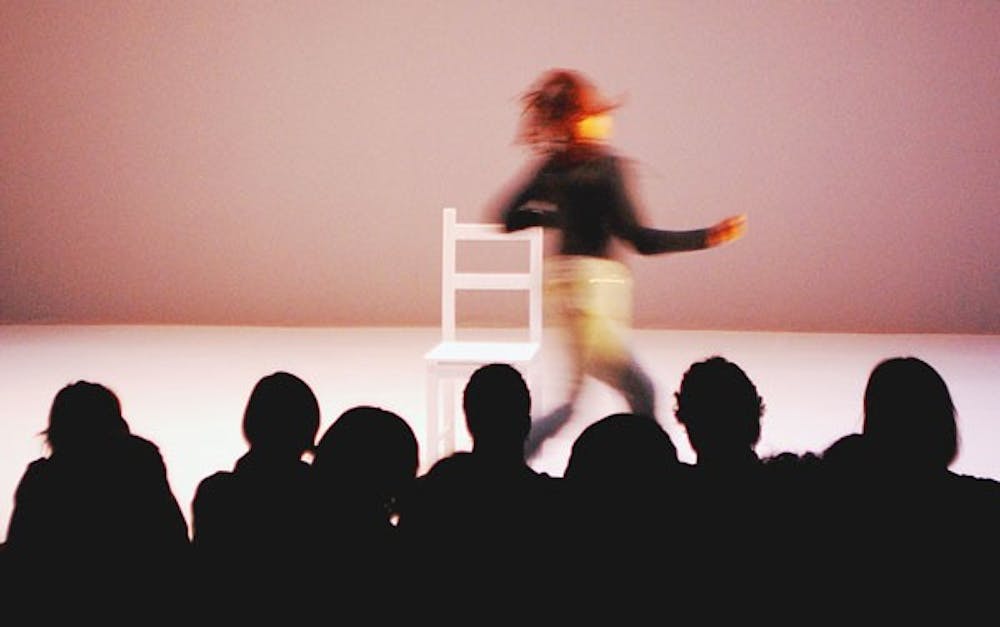Rha Goddess brought her audience into the tumultuous mind of a young woman suffering from manic depression with her performance Friday night.
The show pushed people to challenge traditional notions of mental health and the definition of sanity.
Rha Goddess: Low
3.5 of 5 stars
The final presentation of Low, which is part of the Carolina Performing Arts series, was a one-woman show that featured spoken-word poetry and monologues of Lowquesha.
Lowquesha was created primarily from the experiences of Rha Goddess’ sister, as well as inspired by other women in the actress’ life.
The controversial and emotionally stirring piece pushed both Rha Goddess and her viewers beyond their comfort zones as they were plunged into the brutal reality of mental illness in our culture.
Rha Goddess’ breadth of talent was evident as she represented a single character’s growth from an 8-year-old into an adult, personifying both manic and depressive states of her life.
The dramatic reality of this character’s experience was emotionally fatiguing to relate to and discernibly more so to portray on stage.
After her performance, Rha Goddess took a ten-minute break not only to catch her breath, but also to unwind mentally.
Her emotional investment in the character was apparent when she returned for the question-and-answer session as a markedly different person from Lowquesha.
Topics such as disownment by one’s family, over-medication, the expense of pharmaceuticals, difficulty maintaining jobs and the strain of homelessness were tackled throughout her performance.
The artist also engaged in conversation with prerecorded speeches, representing other characters from Lowquesha’s life.
These speeches and music helped the artist give context to her scenes without ever breaking the flow of her stirring interpretation.
In addition, the simplicity of the stage aided the artist in delivering an impactful performance without the risk of distracting from her pressing message.
Only a chair, pill bottle and pocket knife served as props, while the no-frills lighting instilled different moods, such as a breakdown signaled by red light.
The performance placed both the artist and audience on the stage as part of the Loading Dock Series. This setting imposed a compelling sense of intimacy between Rha Goddess and her viewership.
Forced to consider the impact of mental illness on their own lives, the audience was brought to a significantly vulnerable state.
In a question-and-answer session directly following the performance between the artist and the audience, many patrons admitted to being directly impacted by mental illness and thanked her for addressing the inherent flaws to the country’s health care system.
Ultimately, Rha Goddess reflected not only on the health care system but also on the entire way society views mental health, whether the afflicted individual is a patient, friend or family member.
Contact the Arts Editor at artsdesk@unc.edu.



